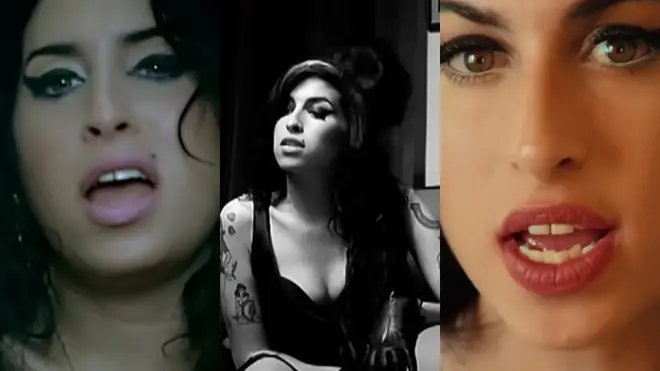On Air Now
The Smooth Late Show with Danny Pietroni 10pm - 1am
11 April 2024, 13:35

Amy Winehouse was one of the most promising talents of her generation.
Amy Winehouse truly made her mark on the music landscape during her relatively short life and career.
Despite only releasing two studio albums, she became one of the most popular artists of the 2000s, and her music will live long in the memory.
With her biopic Back to Black now at cinemas, here are just a handful of her very best songs:

Tony Bennett, Amy Winehouse - Body and Soul (from Duets II: The Great Performances)
This was Amy Winehouse's final ever recording before her death in 2011.
The song was recorded for the then-85-year-old Tony Bennett's album Duets II, released a few months after Amy's passing.

Amy Winehouse - Stronger Than Me
From her Frank album, this was her first ever single in 2003.
It won the prestigious Ivor Novello Songwriting Award, and helped the album sell over a million copies in the UK.

Amy Winehouse - Our Day Will Come: Amy Winehouse Tribute
Originally released by Ruby and the Romantics in 1963, Amy later recorded a cover version for her 2003 album Frank, but it wasn't on the final tracklist.
The song was later included on the posthumous compilation Lioness, released in 2011.

Amy Winehouse - Take The Box
Taken from Amy's first album Frank, this song follows a character who is in the process of leaving her lover after discovering he is having an affair.
The song sees her telling her lover to literally "take the box", including gifts he had previously given her.

Amy Winehouse - Tears Dry On Their Own
While the melody and lyrics of this song were composed by Amy Winehouse, the music behind her voice is a sample of Marvin Gaye and Tammi Terrell's Motown classic hit 'Ain't No Mountain High Enough'.
Amy later said: "'Tears Dry On Their Own' is a track about the breakup with Blake, my ex. Most of these songs are about him. I shouldn't have been in a relationship with him because he was already involved with someone else a bit too close to home.
"The song is about when we split up and saying to myself: 'Yes, you're sad but you'll get over it.' And I did."

Amy Winehouse - Rehab
This song references Amy Winehouse's refusal to attend an alcohol rehab centre after her management team encouraged her to go.
She later explained: "I asked my dad if he thought I needed to go. He said no, but I should give it a try. So I did, for just 15 minutes. I went in said 'hello' and explained that I drink because I am in love and have screwed up the relationship. Then I walked out."
In the lyrics, she mentions "Ray" and "Mr Hathaway", in reference to Ray Charles and Donny Hathaway. The song was produced by Mark Ronson.

Amy Winehouse - You Know I'm No Good
This deeply honest song was the second single from Amy's second album Back to Black.
Actor Sir Roger Moore quipped that he had no idea why Amy chose to include him in the lyrics, unless she wanted a word that rhymes with "door", or could not find a word that rhymes with "Connery."

Mark Ronson, Amy Winehouse - Valerie [Clipe Oficial] (Legendado/Tradução)
Originally by The Zutons, Mark Ronson later recorded it for his covers album Version in 2007.
Having worked with Amy on her Back to Black album, the producer recruited her for this cover version, which became arguably more famous than the original.

Amy Winehouse - Love Is A Losing Game
George Michael named this song as one of his eight choices on Desert Island Discs. When asked which of his eight choices he would pick if he had to choose one, he opted for this.
This song won the 2008 Ivor Novello award for 'Best Song Musically And Lyrically'. However, Amy failed to arrive in time, leaving her father Mitch to accept it on her behalf.

Amy Winehouse - Back To Black
The title track from her second album, this soul classic was inspired by Amy's relationship with Blake Fielder-Civil. He had left her for an ex-girlfriend, leaving her going to "black," which may appear to refer to addictions and depression.
The song's sound and rhythm have been described as similar to girl groups from the 1960s, while its production was noted for its Wall of Sound technique.